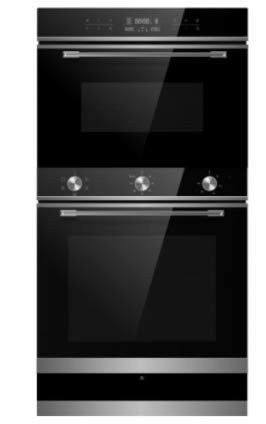Understanding Kitchen Ovens and Hobs: A Comprehensive Guide
The kitchen is frequently described as the heart of the home, and for great reason. It is where families come together, meals are prepared, and memories are created. Central to this cooking sanctuary are 2 necessary home appliances: the kitchen oven and the hob. Understanding their functions, types, and performances is essential for effective cooking and can significantly enhance a home chef's experience. Online Oven will look into the world of kitchen ovens and hobs, examining their numerous types, benefits, and pointers for making informed options.
Tabulation
- Introduction to Kitchen Ovens
- Types of Ovens
- Traditional Ovens
- Convection Ovens
- Microwave Ovens
- Steam Ovens
- Understanding Hobs
- Types of Hobs
- Gas Hobs
- Electric Hobs
- Induction Hobs
- Advantages of Using Ovens and Hobs
- Selecting the Right Oven and Hob for Your Kitchen
- Upkeep Tips for Ovens and Hobs
- Frequently asked questions
- Conclusion
1. Introduction to Kitchen Ovens
Ovens are indispensable devices in modern-day kitchens. They provide a controlled environment for baking, roasting, and broiling food. With various designs and performances, choosing the best oven can drastically affect cooking times, food texture, and taste.
2. Kinds of Ovens
Conventional Ovens
Traditional ovens are the most typical type discovered in homes. They utilize either electric or gas power to warm the interior and typically include a single cooking space.
Advantages:
- Versatile for baking, roasting, and broiling.
- Typically inexpensive.
Convection Ovens
Stove are comparable to conventional ovens however come equipped with a fan that distributes hot air throughout the cooking chamber. This results in even cooking and browning.
Advantages:
- Reduced cooking times due to improved airflow.
- Boosted browning and crisping of foods.
Microwave Ovens
Microwave ovens use electromagnetic radiation to heat food rapidly, making them convenient for defrosting and reheating leftovers.
Advantages:
- Very fast cooking times.
- Energy effective.
Steam Ovens
Steam ovens use steam to cook, maintaining the wetness and nutrients in food. They are especially popular among health-conscious cooks.
Benefits:
- Healthier cooking option.
- Keeps minerals and vitamins in food.
3. Understanding Hobs
Hobs, also known as cooktops, are the flat surfaces on which pots and pans are placed to prepare food. They can be integrated into kitchen counter tops and are offered in different designs, fuel types, and styles.
4. Kinds of Hobs
Gas Hobs
Gas hobs use burner as their heat source, providing instantaneous heat and precise temperature control.
Benefits:
- Excellent control over cooking heat.
- Usually more affordable to run than electric ones.
Electric Hobs
Electric hobs heat utilizing electric coils or glass surface areas. They may take longer to warm up than gas, however they offer a smooth cooking surface and are much easier to clean up.
Advantages:
- Even heat circulation.
- Safe, as there's no open flame.
Induction Hobs
Induction hobs use electro-magnetic energy to straight heat up pots and pans. They require compatible cookware and offer instant responsiveness.
Benefits:
- Highly energy-efficient.
- Faster cooking times and precise temperature level control.
5. Benefits of Using Ovens and Hobs
Both ovens and hobs featured their own special set of benefits that can improve any cooking experience. Here are a few key benefits:
- Diverse Cooking Options: Both home appliances permit a series of cooking approaches consisting of boiling, frying, roasting, baking, and steaming.
- Time Efficiency: Modern ovens and hobs often include quick cooking settings, which conserve time in the kitchen.
- Precision Cooking: With advanced features, users can attain much better outcomes in temperature control and cooking times.
6. Choosing the Right Oven and Hob for Your Kitchen
When choosing the ideal oven and hob, various elements need to be considered:
- Size: Ensure that the device fits conveniently in your kitchen area.
- Cooking Style: Consider what types of food you frequently prepare.
- Fuel Type: Whether gas or electric, consider availability and effectiveness in your location.
- Budget plan: Determine your budget and find home appliances that fulfill your requirements within that range.
List for Choosing Your Oven and Hob:
- Assess kitchen area.
- Recognize your cooking preferences.
- Determine power source accessibility.
- Compare features and requirements.
- Set a budget variety.
7. Upkeep Tips for Ovens and Hobs
Regular upkeep is important for keeping ovens and hobs in optimum condition. Here are some maintenance tips:
- Clean Regularly: Wipe down surface areas after each use and deep tidy occasionally.
- Check Seals: For ovens, inspect door seals to guarantee they are airtight.
- Analyze Burners: For gas hobs, keep burners without food particles to preserve reliable heating.
- Change Filters: If your oven has a filter, replace it as advised by the producer.
8. FAQs
1. What is the difference in between a traditional oven and a convection oven?Conventional ovens
prepare food through convected heat, while convection ovens circulate hot air, resulting in faster and more even cooking. 2. Do induction hobs need unique cookware?Yes,
induction hobs need ferrous cookware that can being allured to work successfully. 3. Are steam ovens worth the investment?For health-conscious individuals or those who typically prepare veggies and delicate foods, steam ovens can be worth the financial investment
due to their capability to keep nutrients. 4. Can I integrate an oven and hob into one unit?Yes, numerous producers offer combined units understood as range cookers, which incorporate both an oven
and hob into a single device. 9. Conclusion Kitchen ovens and hobs are vital elements of any cooking area, each offering unique features and functionalities fit for different cooking styles.
By understanding the
kinds of ovens and hobs readily available, their benefits, and how to keep them, home chefs can cultivate a more efficient and satisfying cooking experience. Whether one is a seasoned cook or a beginner, making notified choices about these vital kitchen home appliances is essential.

